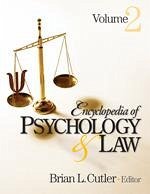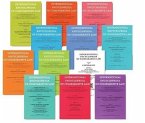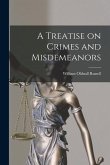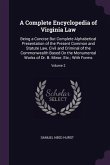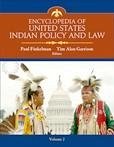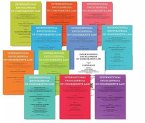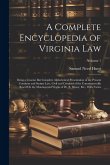The interdisciplinary field of psychology and law appeals to students, psychological scientists, psychologist practitioners, and members of the legal and public policy professions, such as lawyers, judges, lawmakers, and other administrators of justice. This young field of research and practice is noted for its intellectual diversity, as it draws on all of the traditional sub-disciplines of psychology and on various domains of law, legal practice, and public policy. Although this diversity is in many respects a very desirable feature, it creates many challenges as well. In particular, the breadth of research and practice contributes to a dearth of comprehensive reference sources and makes it difficult for individual students, scientists, and practitioners to keep current with the growing knowledge base outside of their individual areas of expertise. The Encyclopedia of Psychology and Law addresses research and practice at the interface of psychology and law. It surveys the traditional subdisciplines of psychology: cognitive; developmental; social; clinical; biological; and industrial-organizational psychology. Published as two volumes and consisting of approximately 350 to 400 entries (1,000 printed pages), the Encyclopedia provides an authoritative and comprehensive A-to-Z list of topics in psychology and law of interest to students, scientists and practitioners. Entries vary in length from 1,000 to 3,000 words, are written in clear and concise language, and are designed to inform without overwhelming the reader. Entries are organized with the use of a reader's guide, which will contain such categories as criminal behavior and Treatment, juvenile offenders, eyewitness memory, forensic assessment and diagnosis, and trial processes.
Hinweis: Dieser Artikel kann nur an eine deutsche Lieferadresse ausgeliefert werden.
Hinweis: Dieser Artikel kann nur an eine deutsche Lieferadresse ausgeliefert werden.

